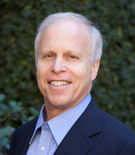Migraine headaches can ruin your day. Anyone who has had one knows the pain, sensitivity to light and sound, and nausea make anything other than lying down in a dark room practically impossible. Especially for people who have them chronically, figuring out an effective treatment is essential. Common treatments include:
- Pain-relieving and preventative medications
- Healthy lifestyle behaviors, such as eating well and exercising regularly
- Some people also incorporate therapy into their treatment regimen to help manage their stress response to everyday events, which can reduce the incidence of stress-induced migraines.
Of course, I teach medical hypnosis, or self-hypnosis, as well as cognitive behavioral therapy, to help patients prevent and manage migraines, with great success. Since I’m a strong advocate of non-pharmacological treatments whenever possible, discovering research that supports my treatment approach is always encouraging, particularly when those studies focus on children and adolescents.
This Study Tested 2 Medications vs. a Placebo on Children’s Headaches
Recently the Journal of the American Medical Association (JAMA) conducted a survey study in which researchers followed up on 205 family participants from the Childhood and Adolescent Migraine Prevention (CHAMP) study for three years.
The Original Study: Researchers tested 2 different medications and a placebo to see which worked best in reducing migraine headaches in kids ages 8 to 17, but concluded early because there was no meaningful difference between treatment options. The placebo worked just as well as the medications! What they did find was that most kids reported fewer headache days or headache-related disabilities during the trial period.
The NEW Study. This new study, then, wanted to know how these kids fared long-term. The JAMA researchers approached the children with four primary questions:
- How representative were the participants of the previous study, and how well were they able to retain them over the three-year study they now conducted?
- Did the children maintain improvements in fewer headache days and disability during the three-year period?
- Over the longer period of time, did the children experience different outcomes depending on which medication they took or if they were in the placebo group?
- How many kids used prescription preventative medication during this time?
They discovered that while the children used different medications at different times during the three-year follow-up period, many also reported taking no medication at all during this time. In fact, the more time that had passed since the original CHAMPS trial, the less medication the children took. By the final three-year mark, only 1 of the 153 (1%) who participated in that survey was taking medication.
Their Conclusion
The researchers concluded that children and adolescents may actually improve and sustain those improvements without migraine pain or preventive medication over the long term, particularly those who had a history of migraines that lasted five years or longer.
Though the results of the study did not reveal what made the difference (e.g., were they in psychotherapy or trying some other sort of non-pharmacological treatment?), the researchers suggested more studies were in order to explore alternative treatment options, such as healthy lifestyle practices, headache education, and psychotherapy.
One commentary on this study stated, “We have anecdotally found that effective preventive migraine management, especially in the youth population, provides patients with the resources to work on other psychosocial factors, leading to a more sustainable reduction in headache burden.”
This statement and these research results support the need for additional scientific exploration of treatments like medical hypnosis for pediatric migraines as we learned that medication is not always the answer. Medical hypnosis has been proven to be effective for patients with migraines.
To see a letter to the editor that I sent to the journal that published this article, click here.
You can read more about how I treat migraines in children and adolescents here and even watch a session I conducted with an actual individual who suffered from them.
If you’re ready to explore medical hypnosis as a treatment option for you or your child’s migraine headaches, please book your free consultation by emailing me right from this page.
Dr. Lazarus

Jeffrey E. Lazarus, MD, FAAP is a board certified pediatrician who combines more than 25 years of general pediatrics experience with the use of medical hypnosis and visualization techniques to treat children and adults.



